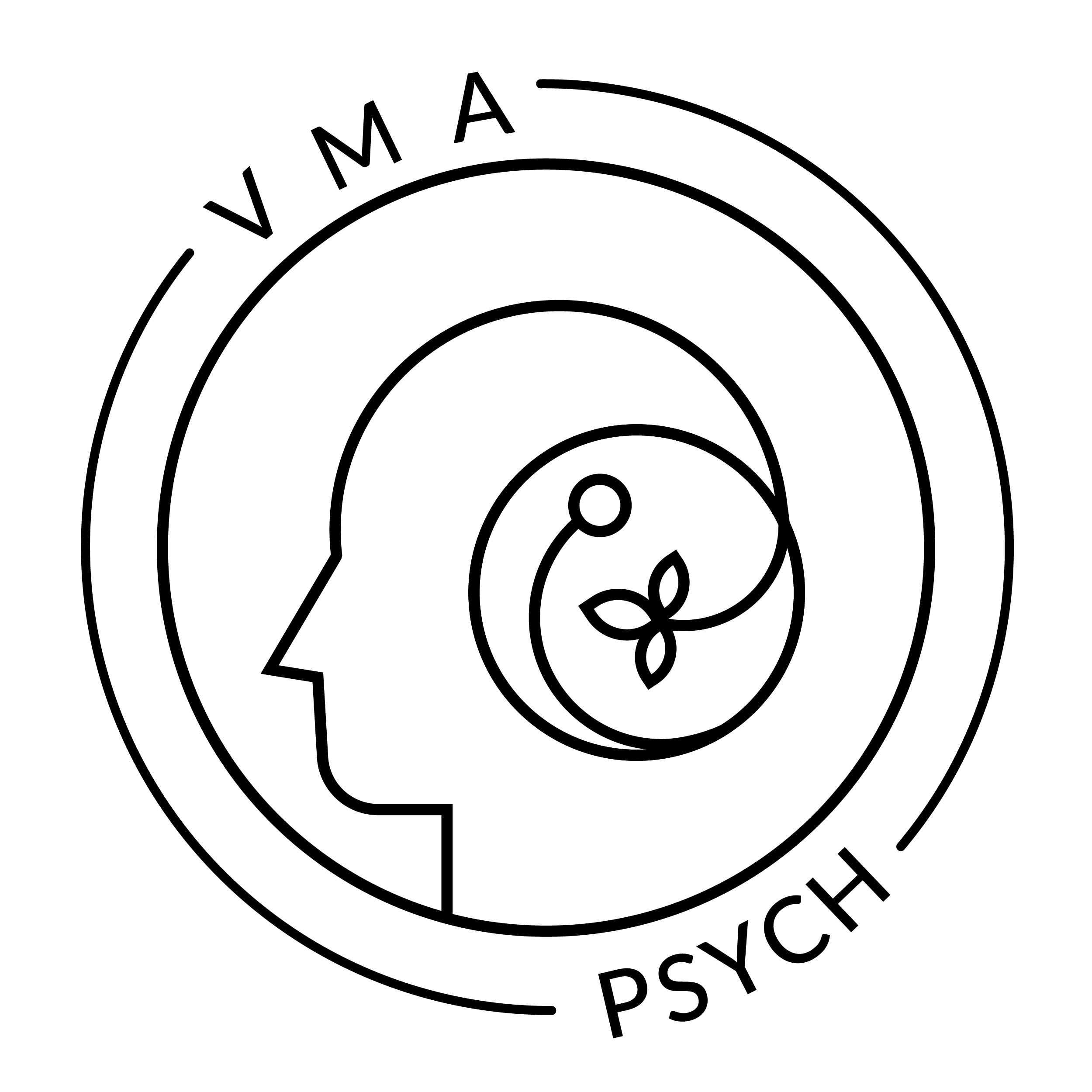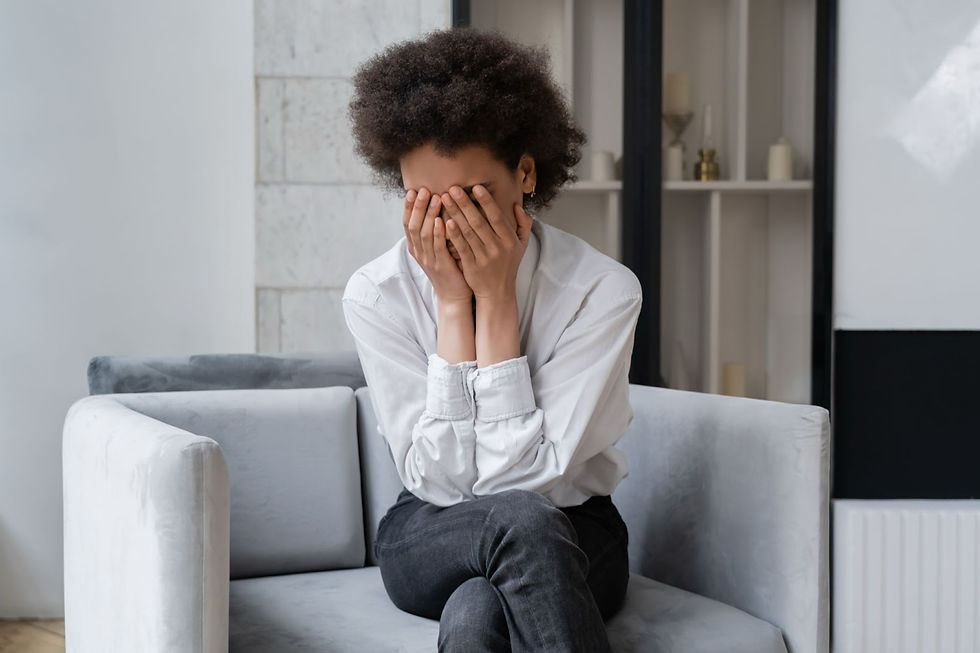Does everyone have anxiety?
To a degree, yes, everyone experiences anxiety from time to time, often as a response to a stressful or life-changing event. Health, family, work, money, relationships, and more can cause anxiety for different people in different ways and at different stages of life. While occasional or mild anxiety is a normal part of life, anxiety disorders are not. Understanding the difference between anxiety and anxiety disorders, and knowing when to seek help are important steps in managing this condition and finding the support you need.
Anxiety vs. Anxiety Disorders
Developmentally normative, or "non-clinical" anxiety likely evolved as a stress response to real and perceived dangers, playing a crucial role in human survival. Our capacity to anticipate future threats and devise strategies helped our ancestors survive attacks by predators or rivals, endure harsh climates, store food for winter, and build protective shelters, among many other things. This adaptive response allowed them to navigate and survive in challenging environments, shaping the way we respond to stress today.
Anxiety disorders differ from "non-clinical" anxiety by being excessive and persistent, causing fears that interfere with well-being. Those with anxiety disorders often avoid feared situations entirely and tend to overestimate the dangers in these situations. Like many things in mental health, most anxiety disorders begin in childhood and can persist into adulthood if untreated. According to the DSM-V, most anxiety disorders are more common in females than in males (approximately at a 2:1 ratio) (DSM-V-TR, p. 215). Some common symptoms of anxiety include difficulty concentrating or making decisions, heart palpitations, sweating or shaking, feeling tense or irritable, avoidance behaviours, and difficulty sleeping.
There are several types of anxiety disorders, including:
Generalized Anxiety Disorder (GAD): Persistent and excessive worry about various aspects of life occuring more days than not for at least 6 months
Social Anxiety Disorder: Intense fear and avoidance of social situations and being judged by others.
Panic Disorder: Recurrent, unexpected panic attacks and fear of having more attacks.
Specific Phobias: Excess fear of specific objects or situations such as heights, bugs, needles, etc.
Separation Anxiety Disorder: An excessive fear, distress, and reluctance of separation or the anticipation of separation from specific others (parents, friends, etc.).
Prevalence of Anxiety
Anxiety disorders are among the most common mental health conditions worldwide. According to Statistics Canada over 5 million Canadians (18%) aged 15 and older met the diagnostic criteria for a mood, anxiety, or substance use disorder in the previous 12 months. It's estimated that one in four Canadians will have at least one anxiety disorder in their lifetime.
Several factors contribute to the development of anxiety, including:
Genetics: Family history of anxiety or other mental health conditions.
Environment: Stressful or traumatic life events, such as the loss of a loved one or experiencing abuse.
Personality: Certain personality traits, such as high emotional reactivity or having low self-esteem, can increase the risk of anxiety.
Medical Conditions: Chronic illnesses or other health issues can contribute to anxiety.
While anxiety is common, the intensity and impact of it can vary significantly among individuals. Some may experience mild symptoms that do not interfere with daily life, while others may find their anxiety debilitating.
Common Triggers and Causes
Anxiety can be triggered by a variety of factors, including:
Stress: High levels of stress from work, school, or personal life can trigger anxiety.
Major Life Changes: Events such as moving, changing jobs, or getting married can cause anxiety.
Trauma: Experiencing a traumatic event, such as an accident or assault, can lead to anxiety.
Everyday Situations: Even everyday situations, like meeting new people or speaking in public, can trigger anxiety for many individuals.
It’s important to understand that triggers vary widely among individuals. What causes anxiety for one person may not affect another in the same way.
Like all mental health disorders, there are dangers to self-diagnosis. Ensure you consult with a professional if you are concerned you or a loved one may be suffering from an anxiety disorder
Managing Anxiety: Recommendations
While these strategies may help manage anxiety, they are not definitive solutions and should be tailored to individual needs.
1. Mindfulness and Relaxation Techniques
Mindfulness and relaxation techniques can help reduce anxiety by promoting a sense of calm and focus.
Deep Breathing: Practicing deep breathing exercises can help calm the mind and reduce anxiety.
Meditation: Regular meditation can help increase awareness and reduce stress.
Progressive Muscle Relaxation: This technique involves tensing and then relaxing different muscle groups to reduce physical tension.
2. Physical Activity
Regular exercise can help reduce anxiety by releasing endorphins and improving overall mental health.
Walking: A simple and accessible way to start incorporating physical activity into your routine.
Yoga: Combines physical movement with mindfulness and relaxation techniques.
3. Healthy Lifestyle Choices
Maintaining a healthy lifestyle can support mental health and reduce anxiety.
Sleep: Ensure you get enough restful sleep each night.
Nutrition: Eat a balanced diet rich in nutrients.
Limit Caffeine and Alcohol: Both can increase anxiety in some individuals.
4. Seeking Support
Talking to others can provide emotional support and help reduce feelings of isolation.
Friends and Family: Reach out to those you trust and share your feelings.
Support Groups: Join a local or online support group for individuals with anxiety.
Professional Help: Consider reaching out to mental health professionals for therapy or counselling. Private counselling services, like those offered by VMA Psych, can provide tailored support and strategies to manage anxiety.
When to Seek Professional Help
It’s important to seek professional help if anxiety is interfering with your daily life or causing significant distress.
Signs that it might be time to seek help include:
Persistent Worry: If your anxiety is constant and overwhelming.
Avoidance: Avoiding situations or activities due to anxiety.
Physical Symptoms: Experiencing frequent physical symptoms like headaches, stomachaches, or panic attacks.
Impact on Daily Life: Difficulty functioning at work, school, or in personal relationships.
Therapy, such as cognitive-behavioural therapy (CBT), can be very effective in treating anxiety. Medication may also be prescribed in more severe cases to help manage symptoms.
In Canada, you can find a mental health professional through referrals from your primary care provider, local mental health organizations, or private counselling services.
If you or someone you love is struggling with anxiety, consider reaching out to VMA Psych for more information and support. Our professionals can provide comprehensive assessments and tailored interventions to help you manage anxiety effectively. Don't hesitate to seek the help you need to improve your mental health and well-being.
Additional support and resources can be found at Anxiety Canada or by contacting the Ontario Mental Health Helpline at 1-866-531-2600 or by visiting the Ontario government Mental health support page. Remember, you are not alone, and help is available.
Welcome to VMA Psych.
Your trusted provider of exceptional mental health services in the GTA & beyond. Learn More
With 40+ years as Toronto's leading psychologists, we guide individuals through life's complexities, offering specialized services for a brighter future.





















